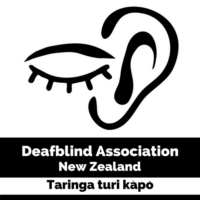Skip to content
- Volunteer driver support for deafblind members. Rationale: This isolated group seldom has the chance to come together for peer-to-peer support, and to meet, share, and resolve issues on their own terms.
- Quality sound systems in Blind Foundation venues where members meet, and staff trained to speak clearly and directly into the microphone for effective communication. Rationale: many senior members as well as deafblind members need boosted and assistive hearing to participate.
- Regular meetings between Deafblind Association NZ and Blind Foundation Deafblind Services for sharing information and coordinating initiatives, including regular face-to-face meetings of Deafblind Executive Officer and Blind Foundation National Manager responsible for Deafblind Services.
- Closer collaboration with organisations and agencies that “share the care” in respect of complex deafblind needs; e.g., those providing services for Deaf and hearing impaired, and intellectually disabled – collaboration pan disability.
- A formal plan to develop intervenor communication guide service for members with severe to profound deafblindness. Rationale: The communication technologies and socialisation skills required by deafblind people are specialised and not easily acquired, including hand-to-hand communication.
